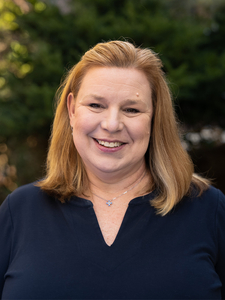Transcript
I think that's a wonderful question. For one, it tells me the person understands the seriousness of what they're looking at. They have a marriage that they are trying to discern what is happening, and it's really critical that they answer that question well. They don't want to say something is abusive or label it as such when it is not, that does damage, but it's also damaging to a victim if abuse is missed or it's failed to be identified. And so it's really important that people are wise and seek to answer this question well. And so I just really want to encourage people to know that there is really only one truth and God does not want to hide that from us. Now each person is going to tell you a different series of events. And even if both people were seeking to be honest, neither person is going to be recounting every detail or interpreting every event in a way that is 100% accurate. We just know that is true about the human heart. We know that's true about conflict and that's true of us in our daily lives.
But we also want to recognize there's something broader at play if oppression is occurring. Because a person who is oppressive is going to be very skilled at blame-shifting and deceiving you, and we want to be alert to that and on guard for that. And victims, due to the nature of their own trauma, they tend to tell stories in scattered ways, or some confessing that they're not sure that they're remembering everything right. Even as they're telling you what's going on in their own world, their own confusion is coming across. And that might impact your ability to have confidence in what they are telling you. And so there's just so many relational dynamics that make getting at the truth difficult. So you're going to have to be discerning.
You are tasked with discerning if abuse is present. It’s a serious task, and we don't want to err in either direction. So yeah, I just want to encourage you, it's okay to go slow. When people are disclosing abuse, chances are you are not going to have a good conceptualization of what's going on in that marriage right away. It could take weeks, sometimes even months, to really understand what's happening. So let time be your friend. Don't feel pressure to have to make an assessment immediately. Recognize that victims might be afraid to trust you. You might not get the whole story from them right away. And so I've seen that impact many pastors. I remember one pastor called me and said a woman that he had been counseling for three months just recently told him that her husband had locked her in the basement. And he thought that the fact that she was revealing this three months later meant that she was now beginning to make things up so that he would believe her. And he just felt like, “Why would she be giving me new information now if it was the truth? This should have been told to me at the inception of our counseling.” And I just really wanted to encourage him that she was probably afraid to trust you. She wasn't ready to share you with that detail. And so oftentimes, victims take time to reveal parts of their story to you. And so it's okay if you're getting new details. Don't let that discredit or undermine a person's truthfulness. It's actually that they're starting to trust you, that they're able to share with you more.
Also, victims don't present in a way that's confident. They're not certain of their reality, right? One of the things their oppressor is telling them is “You don't remember things correctly,” “These things are your fault,” “I've never said that.” So they're often doubting themselves. And that's really difficult if you're trying to discern who's telling the truth, if one person is appearing very confident and the other person is looking unconfident. So that affects how we make assessments.
I think it's just really important to remember that God knows and is eager to guide you. He knows what's happening in that home. He knows the truth. Abuse happens behind closed doors out of our sight purposefully when we don't see it. But the Lord does know and he wants to help you. James tells us, if any of you lacks wisdom, you should ask God who gives generously. He gives it generously to us. And so I think that's just a helpful reminder that you just want to be praying, asking the Lord to reveal things to you, that you are not in this alone, and that God does not want things done in secret that are evil and harmful to remain in secret. He wants them to be exposed and he will help you do that.
So there's just some basic things, ways to think about when people are disclosing their stories to you, but there's also certain things you want to look for when you're interacting with the people directly. Usually a victim is the one who is more fearful. They're going to be readily confessing their sins. If they've harmed their spouse or done something wrong or said a curse word even, they're probably going to come in and confess that right away to you. While the other spouse, the one who is oppressive, is going to be blame-shifting. They're going to be demanding things from you. They're going to be trying to control the process. So they present very differently, and I think that's really helpful. Victims are going to be afraid for you to confront their oppressors. People who are abusive often claim that their spouses the abusive one, but they're going to come to you and say, “My spouse is out of control. I need you to do this with them. They're harming me in this way.” They're going to be very directive, very confident. They're not afraid of being punished by their spouse, where the truly abused spouse is going to be. So I think that's just a helpful thing to be alert to.
Another one is that you want to look at what is motivating certain behaviors. As you're talking to people, you're going to find out what's happening in their marriage. You're going to hear details that might be confusing to you. Maybe one spouse pushed another one out of the way, and you have to decide, was that an act where they were resisting being abused, where they were being trapped in a room and they pushed someone out of the way? Or is that physical act a way to control their spouse? Sometimes we get confused because in the midst of an argument of victim behaves badly. So we want to slow down and find out what was happening in that room.
Another thing is you're going to be wanting to looking for patterns of coercive control, which means you're going to be asking probably dozens and dozens of questions and extracting lots of details and asking for clarification, and trying to really get a sense of what arguments look like. What does it look like when people are together? And that takes time. And again, that just goes back to the principle of being slow. But patterns of coercive control—if someone's coercively controlling, it's going to show up in all sorts of places, so you want to be asking all sorts of questions.
Then finally, I just want to encourage you that you don't have to label something as abuse to address sin, right? If you uncover sin, it's okay that you address it. We want to take all sin seriously. However, when we're suspecting that there might be abuse present, we just want to take the extra measure to provide for safety in case abuse is there, but we don't have to label something as abuse to address sin or to protect someone we fear might be being harmed.
•
Related resource: Is it Abuse? A Biblical Guide to Identifying Domestic Abuse and Helping Victims by Darby Strickland


